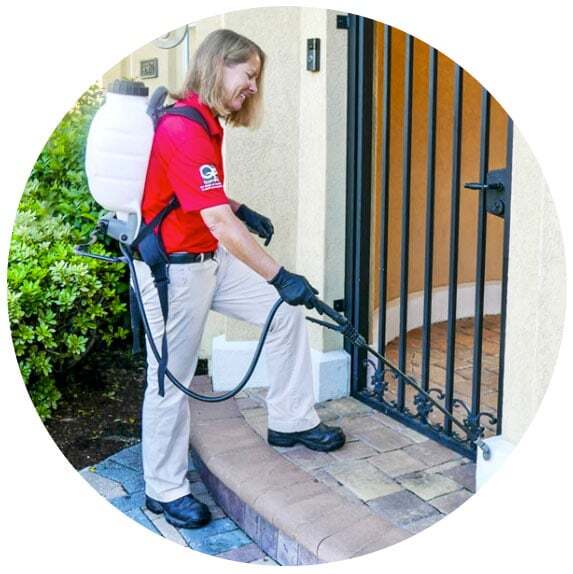
The words “bees and wasps” often get put together in a phrase, as if they were the exact same type of insects. But, are they? Well, honey bees and wasps are in fact from the same insect order: Hymenoptera.
According to the Encyclopedia Britannica, the Hymenoptera order is quite broad, including more than 115,000 types of insect species. These include bees and wasps, as well as ants, sawflies, ichneumons (which includes different types of wasps), chalcids (which also contains types of wasps) and much more.
Although wasps and bees may be in the same scientific insect order, they are not the same when it comes to pest control.
At Turner Pest Control, we do not provide control services for honey bees, which have an essential role in the health of the ecosystem in Florida and throughout the country.
We do provide expert services to solve any issues you may have with wasps, other types of bees, and stinging insects on your property.
According to the University of Florida, wasps found in our area include the following:
There are plenty of bee species in our state, many of which are beneficial. Local types of bees include:
You can read more about bees in our Ultimate Guide to Pest Control.
When you need to get rid of wasp nests near your Jacksonville home or are otherwise having problems with wasps, it’s best to call in the professionals. We offer free, no-obligation estimates on our pest control service, which includes wasp control.
If you don’t currently have a problem with bees or wasps, it can make sense to proactively keep them away. Fortunately, there are items commonly found in households or easily obtained that can help keep them away from your property. For example, they dislike the smell of dryer sheets—so you can place them strategically, perhaps around a deck where you plan to enjoy eating outdoors.
They also hate the odor of mothballs, so you can tie those up in some cheese cloth and put them near where you’ll be. Another smell they dislike: the pungent odor of cloves.
Any time you’ve eaten outside, or fed pets there, remove anything that might attract insects. Keep trash cans tightly lidded, wipe up soda spills and sugary crumbs, and so forth. Also take a walk around your house to see if there are gaps in siding or panelling that could make an ideal wasp nest.
Bees may be drawn to piles of decaying leaves or dry wood, so make sure that none of these materials are near your home. Store flower pots and empty buckets indoors and otherwise eliminate places that might attract bees. And, let’s face it. Bees are naturally attracted to flowers. They are in fact a key reason why we can enjoy having flower gardens! Just don’t plant them too close to your home.
To keep bees and wasps from entering your Jacksonville home, seal up any holes that you can find and weatherstrip cracks and crevices around your windows and doors.
DIY methods to get rid of stinging insects is not always effective, and may even be dangerous, particularly if you or someone on your property is allergic to stings. For your safety, let the experienced Jacksonville pest control technicians at Turner Pest Control take care of the problem. We can request an appointment online now.

Ready for expert pest control? Find a Turner Pest Control location near you.